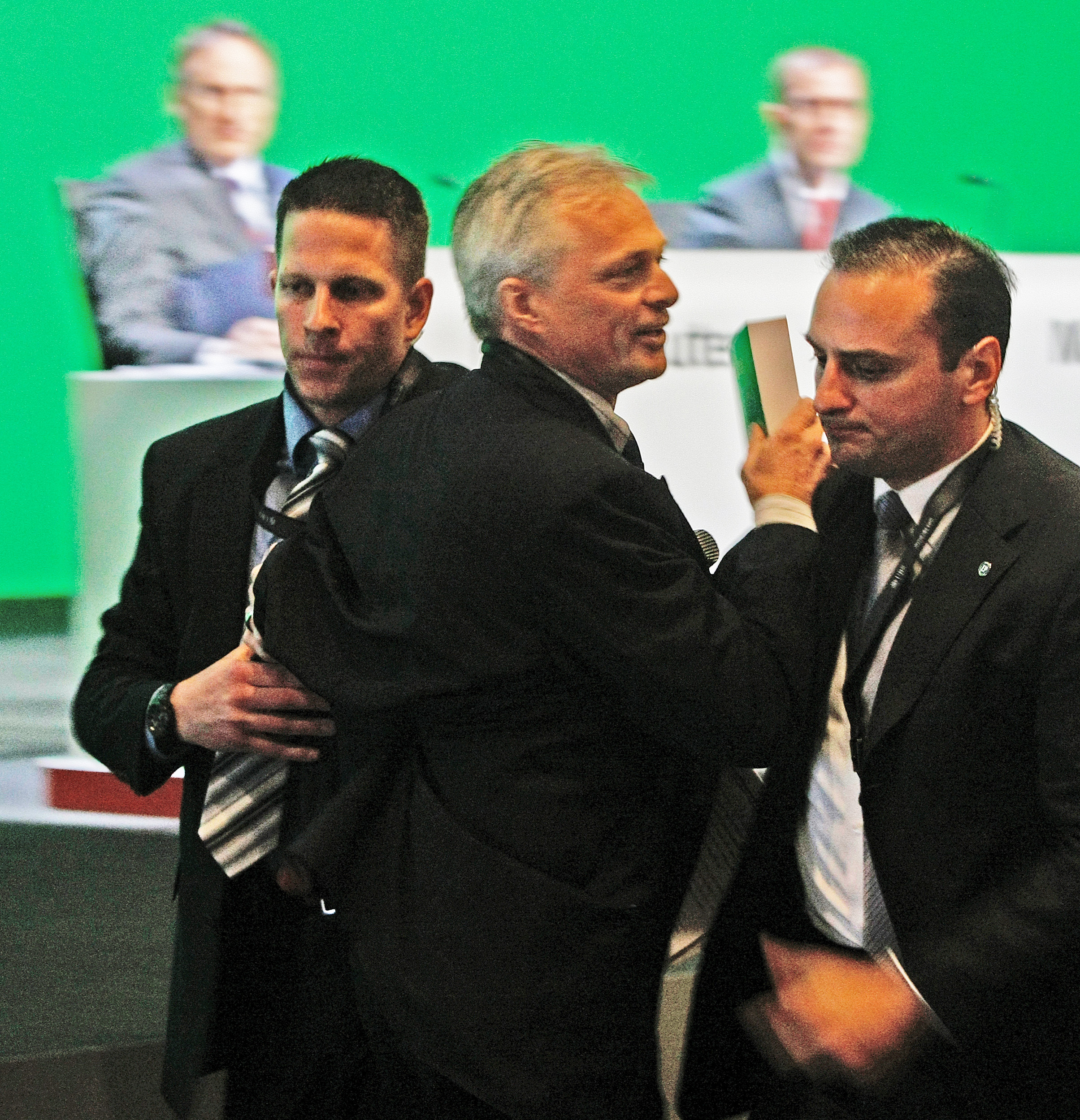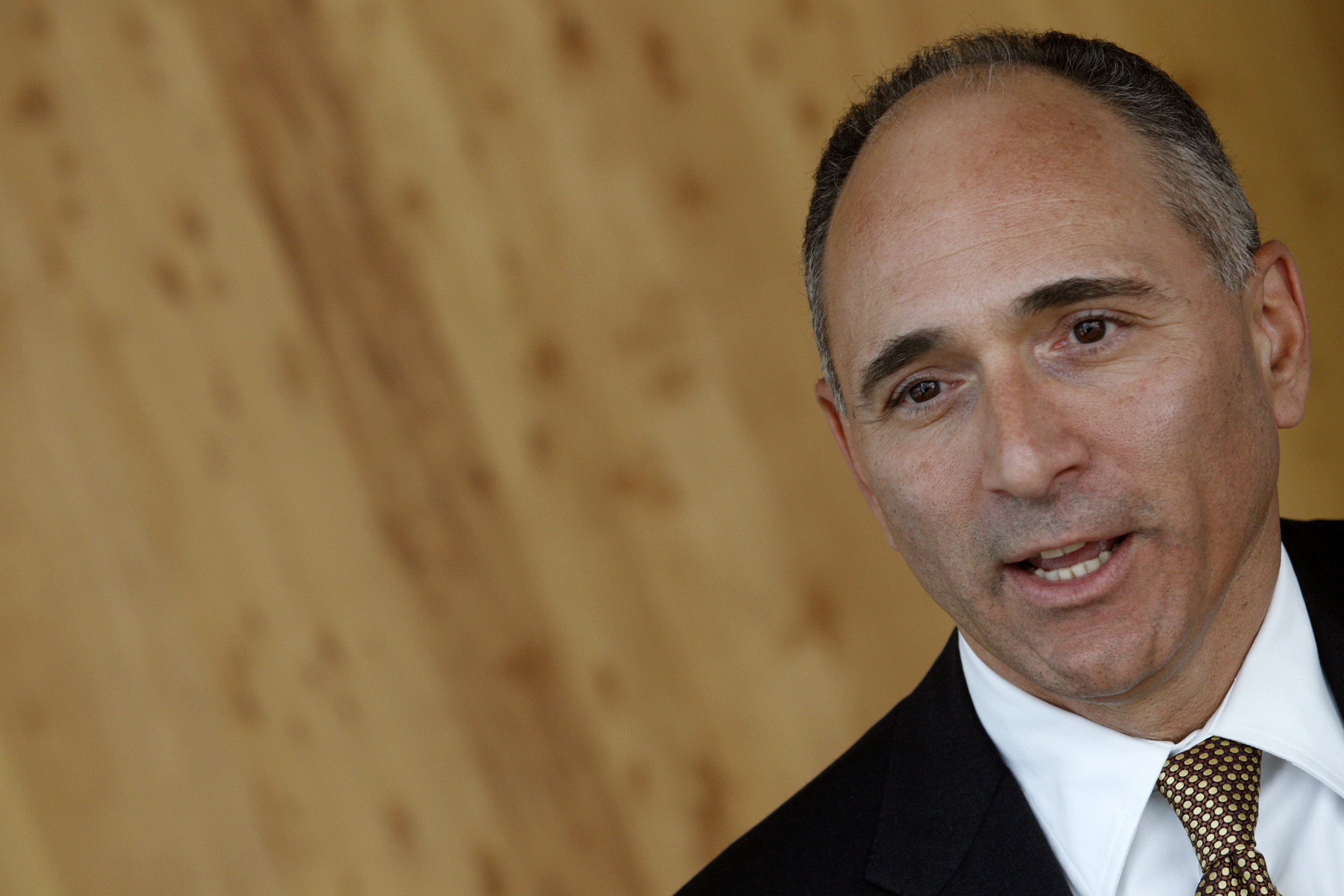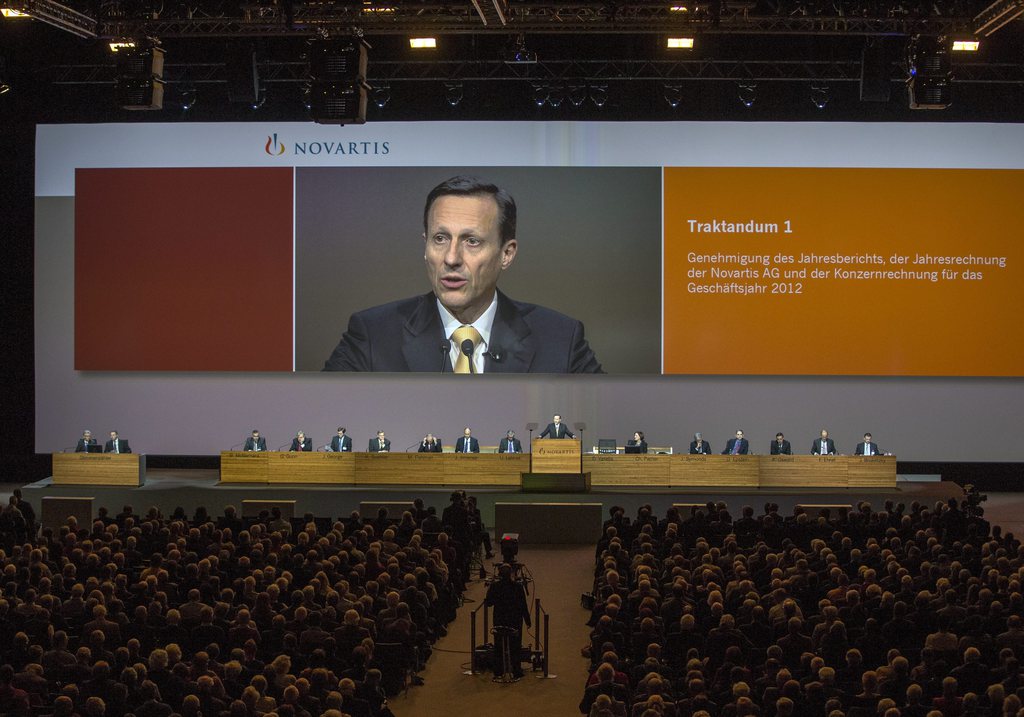Shareholders unlikely to strike down managers

Swiss voters came out overwhelmingly in favour of a proposal against fat cat salaries on Sunday, but how effective will the changes be, and how many shareholders will exercise their newly-won rights?
The initiative (which will still take some years to come into force) gives shareholders a binding vote on remuneration, a greater say on who sits on boards and bans some bonuses, such as golden parachutes and handcuffs.
But not everyone is convinced that the initiative will greatly influence shareholder attitudes. Even seasoned activists such as the Braun, von Wyss & Müller (BWM) investor advisory firm are sceptical.
One reason is that a large chunk of Swiss company shares are held by overseas entities, such as hedge funds, that are happy to let executives have their way as long as share prices rise and dividends are paid out.
“These large funds don’t give a damn what’s going on here,” Georg von Wyss told swissinfo.ch.
BWM objects to individuals being paid in excess of CHF10 million ($10.75 million) per year.
“Every dollar that goes into someone’s pocket rather than into the company, reduces the value of that company,” von Wyss said. “For CHF10 million you ought to be able to get pretty good people.”
“It is annoying to see how much money executives grab for themselves, but shareholders still don’t defend themselves.”

More
Fuelled by public ire, alone against the world
Novartis shareholders becalmed
The annual general meeting at Swiss pharmaceutical giant Novartis, on February 22, is a case in point.
In the weeks preceding the AGM, outgoing chairman Daniel Vasella had negotiated a “golden gag” deal behind closed doors that promised to pay out up to CHF72 million if he didn’t work for competitors in the next six years.
When details were leaked to the press, Novartis and Vasella were forced to cancel the agreement, just three days before the AGM.
But when shareholders were invited to vote on the rest of Novartis’s remuneration policy, more than 78 per cent approved the package. There was barely a murmur of dissent within the conference hall.
This mirrors research in the United States and Britain that shows hardly any change in shareholder voting patterns years even after “say on pay” rights had become enshrined in law.
The AGM decides each year the total amount of remuneration to the board of directors, the executive and the advisory board.
Each year it elects the chairman of the board, the individual board members and the compensation committee, and the independent proxy holder.
The pension funds vote in the interest of their members, and their vote is made public.
Shareholders can vote electronically from a remote location if they wish.
Voting on these matters cannot be delegated to the executives, managers or to proxy shareholders.
Executives and managers cannot receive golden handshakes or other compensatory payments, advances, or bonuses for buying or selling companies, nor can they be awarded additional contracts for consulting or work for other companies in the group.
Management cannot be delegated to a legal entity.
Infraction of the provisions is punishable by prison up to three years and a fine equivalent to up to six years’ pay.
Criminalising greed
Activist shareholder group Ethos – which represents pension funds in Switzerland – had urged Novartis shareholders to reject the compensation package. But the veteran campaigner against fat cat salaries had also conversely opposed the initiative by the self-styled anti-establishment champion, Thomas Minder.
Not only will it take far longer to put into practice, “the counterproposal [by parliament] gives shareholders greater rights on key points”, Ethos stated before the vote.
These include a vote not just on the total amount being paid out by companies to managers, but also on the structure of the remuneration system, including the way bonuses are awarded.
BWM’s von Wyss also has reservations about the initiative, particularly the possible prison sentence for bosses who fail to toe the line.
“This is an issue between shareholders and company boards. I don’t see why legislators or the courts should get involved,” von Wyss said.
“New laws tend to bring unintended consequences that can be pernicious.”
The overwhelming impression is that these shareholder activists find the Minder initiative too clumsy and rigid, almost damaging to progress made so far.
Thieves will be thieves
Vasella’s “golden gag” had, after all, been cancelled following a storm of public disapproval, and Novartis is one of 49 listed companies in Switzerland that already gave shareholders a consultative (but not binding) vote on pay and bonuses.
Not many firms would nowadays dare to nominate one person for the dual (and sometimes conflicting) roles of chief executive and chairman. This concentration of power was once almost de rigueur among Swiss companies.
For Actares, a group that represents small shareholders, the Minder initiative is a major victory. But it still does not provide all the answers for shareholders, according to Actares chief executive Roby Tschopp.
“Shareholders now have more rights and opportunities to raise issues and participate in debates, but this does not get rid of all the problems,” he told swissinfo.ch.
“We will not be sitting back and relaxing now – in fact we will be doing more than ever before.”
“Of course some companies will find new ways of ripping off shareholders,” Tschopp added. “Stealing is forbidden by law, but there will always be people who find a way.”
While many countries already offer shareholders an advisory vote on company remuneration (including the US and Britain), Switzerland has now joined a select band that mandates a binding vote.
These countries include the Netherlands, Sweden, Denmark and Norway.
The European Union recently agreed new rules that would limit bonuses in the financial sector to the value of a years’ salary.
Shareholders could allow this cap to be doubled through a vote.
The EU rule has yet to be rubber stamped, let alone implemented, but is expected to pass.
The Lausanne-based IMD business school gives Switzerland reasonably high marks for shareholder rights in its annual World Competitiveness report.
Switzerland is ranked in 18th place out of 59 countries for empowering shareholders.
This ranking is above the US, Britain and France, but below Germany and the top placed Scandinavian countries of Finland, Norway, Sweden and Denmark.

In compliance with the JTI standards
More: SWI swissinfo.ch certified by the Journalism Trust Initiative




You can find an overview of ongoing debates with our journalists here. Please join us!
If you want to start a conversation about a topic raised in this article or want to report factual errors, email us at english@swissinfo.ch.